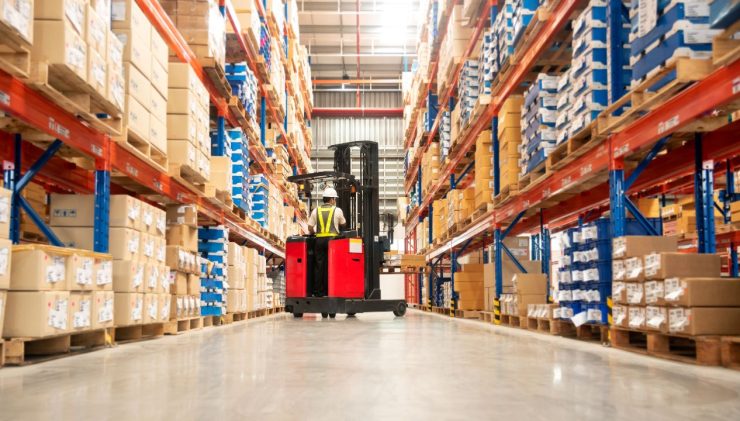 Enrolling in Medicare: Avoid Common Mistakes
Enrolling in Medicare: Avoid Common MistakesInland marine insurance has the word “marine” in it, so you might assume it has something to do with the ocean. It doesn’t. Despite the somewhat confusing name, inland marine insurance provides property coverage for items being transported or stored on land – or “inland” – and your small business may need it.
What Is Inland Marine Insurance?
According to IRMI, marine insurance provides coverage for goods that are being transported by land or sea. Ocean marine insurance covers goods being shipped by sea, and inland marine insurance provides coverage for goods being transported by land.
The Insurance Information Institute (III) says that inland marine insurance provides coverage for products, materials and equipment when transported over land or when warehoused temporarily by a third party.
The terms are admittedly confusing, but they’ve been the industry standard for a while. Don’t let this confusion prevent you from securing the coverage you need for your business.
Which Small Businesses Need Inland Marine Insurance?
If your business involves transporting expensive items to clients, vendors, trade shows, worksites or other locations, you may need inland marine insurance. However, you may have coverage under your other insurance policies, such as your commercial auto insurance, commercial property insurance or business owners policy.
According to III, your business may not need inland marine insurance if the only time you transport goods is when employees bring tools or equipment to a nearby job site. In this case, your other policies will probably cover you. However, if you regularly transport high-value goods, you may need inland marine insurance. These goods could include anything from fine art to electronic devices to construction equipment.
What Does Inland Marine Insurance Cover?
III says that cargo theft and collisions are the two most common causes of inland marine losses.
Collisions are a major threat. The NHTSA says there were 5,250,837 police-reported crashes in 2020. Although many of these crashes involve passenger cars, a significant number involve commercial trucks. The FMCSA says that 327,000 large trucks were involved in crashes that had property damage but no injuries in 2020, 107,000 were involved in crashes with injuries, and 4,842 were involved in crashes with fatalities.
Shipping your freight by train also comes with property damage risks. According to KTLA, data from the Bureau of Transportation Statistics shows that an average of 1,704 train derailments occurred each year between 1990 and 2021.
Cargo theft is also a serious problem, and it can impact both trains and trucks. Desert News says freight train looting in Los Angeles increased during the pandemic, and Union Pacific said it experienced a 160% increase in looting. CargoNet says there were 1,285 supply chain risk events in the U.S. and Canada in 2021; 55% of these events involved the theft of a heavy commercial motor vehicle, and 54% involved the theft or attempted theft of cargo. Each cargo theft resulted in a loss of $172,340 on average.
If your high-value goods are damaged in a collision or stolen while in transit, you might not have coverage under your Business Owners Policy (BOP). Inland marine insurance is designed for risks involving goods in transit.
Special Types of Inland Marine Coverages
Inland marine insurance is a broad category of insurance coverage, and there are several specialty types of coverage. These specialty inland marine coverages include builder’s risk coverage and bailee’s coverage, as well as several others.
- Builder’s risk coverage is a type of property insurance that covers property during construction and renovation projects. IRMI says that there is no standard builder’s risk form, but it is usually written on inland marine insurance forms instead of commercial property forms.
- Bailee’s coverage provides protection for client goods that are left in your care. IRMI defines a bailee as “a person or organization to which possession of the property of others has been entrusted.” If your small business provides storage or repair services, for example, you could be considered a bailee, and you may need bailee’s coverage.
Find Out if You Need Inland Marine Insurance
If your small business operations involve transporting goods to clients, vendors, trade shows or other locations, you may need inland marine insurance to cover your risks. You may also need specialty inland marine coverage if your business involves warehousing, repairs, storage, construction or remodeling.
Obtaining the right insurance can be a balancing act. On the one hand, you don’t want to pay for overlapping coverages or coverage types you don’t need. On the other hand, you don’t want to leave your business exposed to uncovered risks by forgoing insurance you need, which might include inland marine insurance. Heffernan Insurance Brokers can provide your small business with an insurance package tailor-made to fit your unique needs. Learn more.



